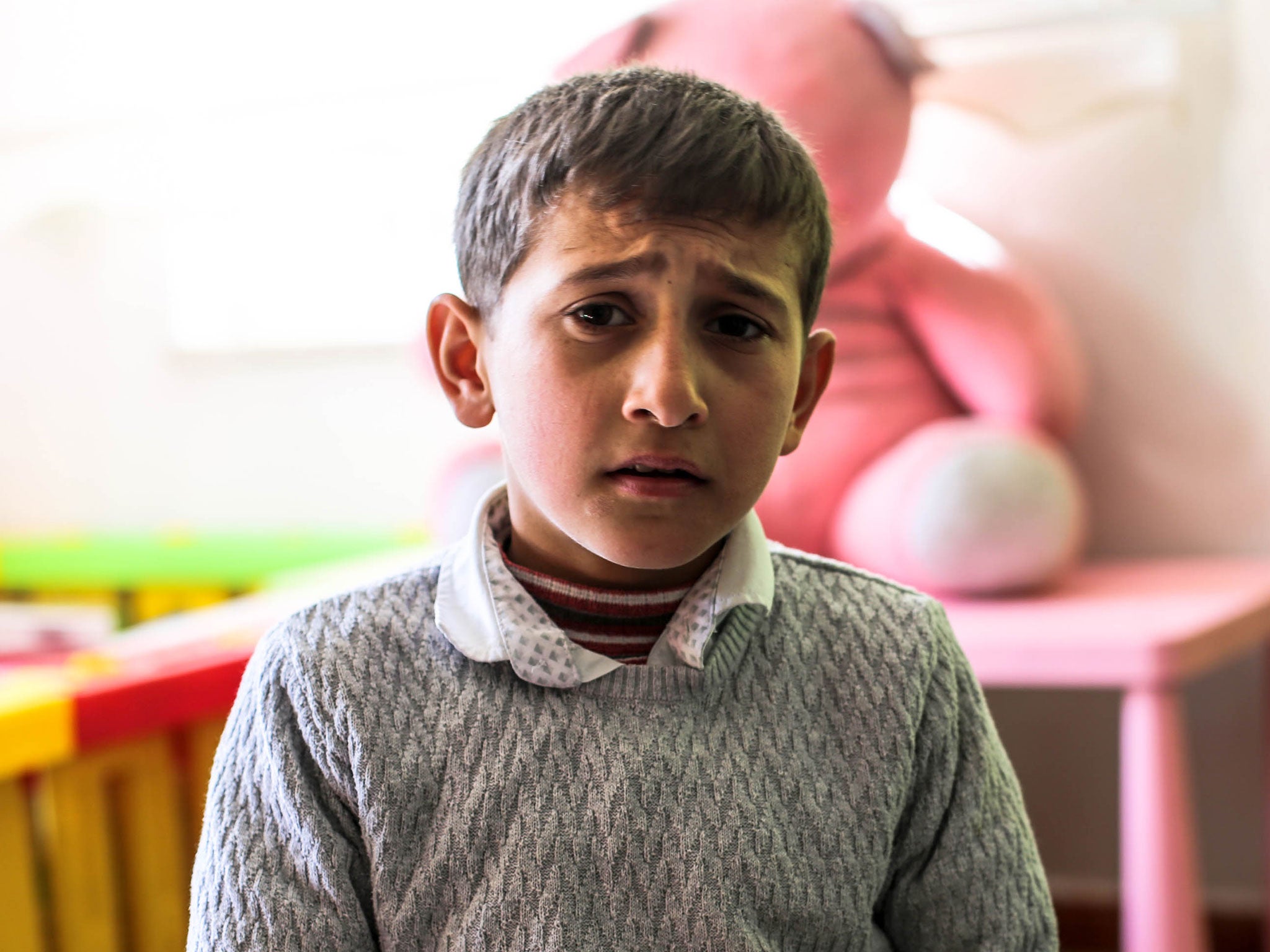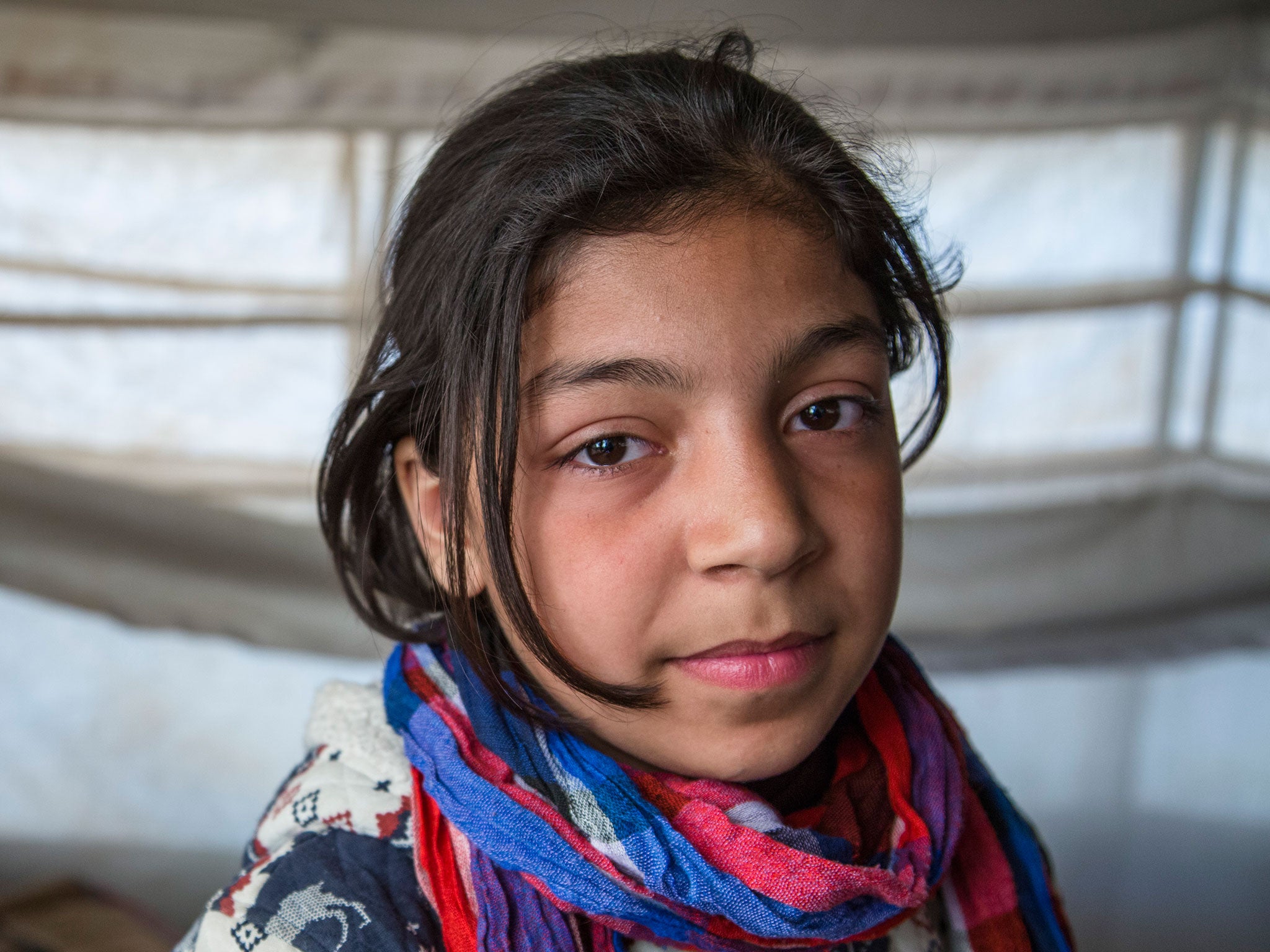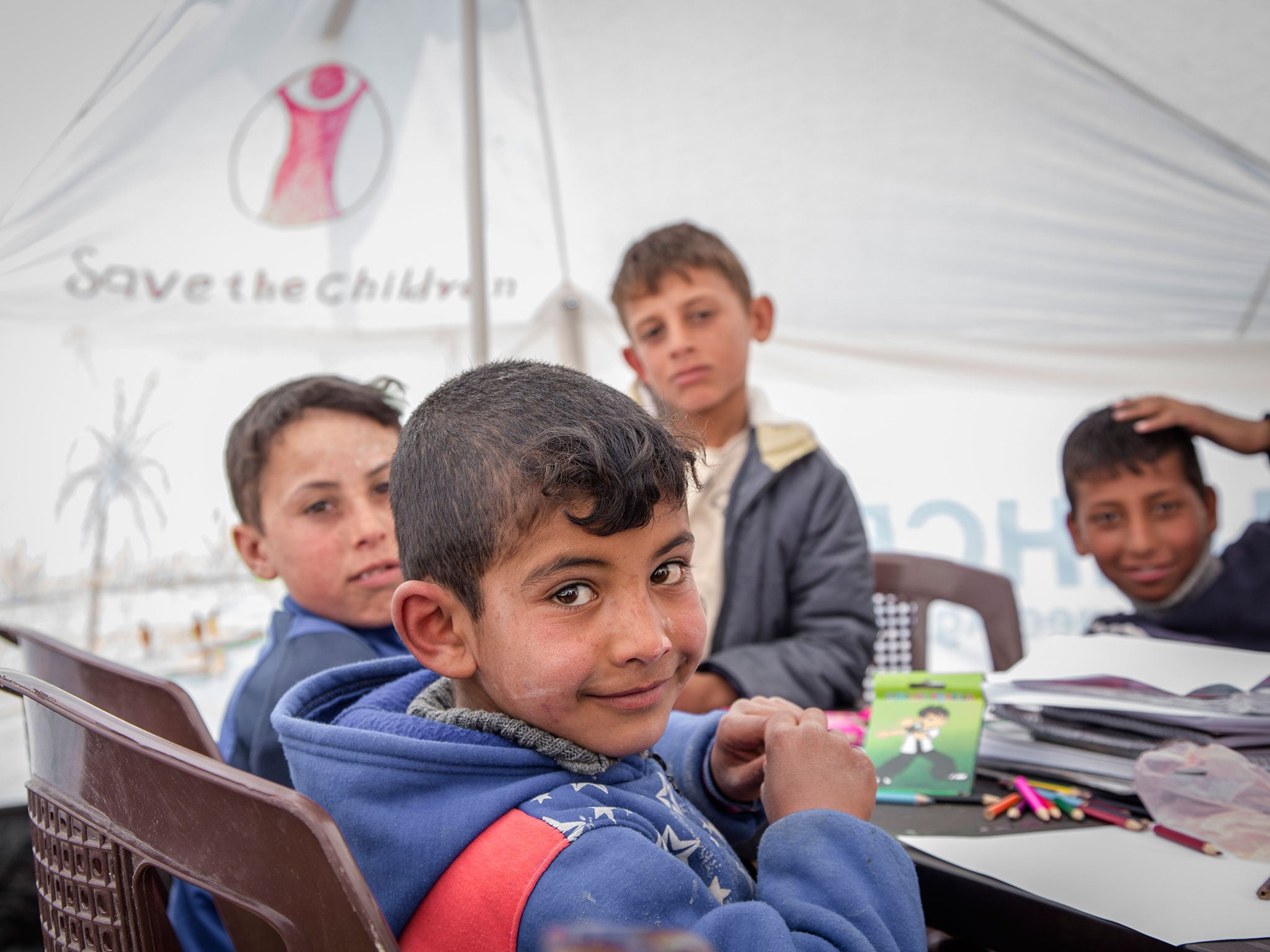Syria's children face 'toxic stress' as air strikes and violence leave life-long trauma, report warns
Thousands of children at risk of trauma and mental illness after six years of bloodshed
“I don’t like the planes, or the shells, or bombs, or mines - some of them are underground, so you might be walking along and the mine explodes and then you die,” Ahmed explains.
“Also someone might throw a bomb and it could kill you. Or a missile could make shrapnel which kills half of the people it hits.
“I am afraid of blood, and I am afraid to see a dead body and someone with his head chopped off.”

He was seven years old when his father was killed in shelling in Syria, forcing the family to flee the bombing.
But they found themselves trapped in Isis’ self-declared capital of Raqqa, where the little boy saw the terrorist group’s victims beheaded, their heads put on spikes and bodies hung up in the streets.
Ahmed, now nine, is safe in Turkey but the trauma has left him stammering, unable to sleep, wetting himself and lashing out at his mother and sisters.
He is one of thousands of children bearing the invisible scars of the Syrian civil war in a mounting crisis threatening the country’s future.
Many remember nothing before the brutal conflict, which shows no sign of slowing in the sixth year of bloodshed, losing loved ones, their homes and their education.
A new report by Save the Children has revealed the extent of what mental health experts are calling “toxic stress”, which has a life-long impact on mental and physical health.
Interviews with more than 450 children and adults found that many youngsters are living in an almost constant state of fear, terrified by air strikes, shelling and the atrocities committed by Isis and other groups.
Almost half of children interviewed said they did not feel safe at school or playing outside and 80 per cent felt grief, with the strain manifesting itself in speech impediments, bed wetting, withdrawal, aggression, self harm and suicide attempts.
Parents are suffering themselves and struggling to cope, with support services collapsing inside Syria amid an exodus of doctors, and scarce in refugee camps surrounding its borders.
Save the Children is among the humanitarian groups running programmes to bring a sense of normality back to their lives, with sessions to help them come to terms with their experiences through talking, playing and making art.
Among the children receving help is 11-year-old Zainab. She lives in Syria’s al-Hol refugee camp with her mother and two siblings after fleeing the Isis-held city of Deir Ezzor, where her father remains.
“Isis takes children and teaches them about weapons and punishments, like the punishments they do on people’s hand when someone steals or says anything,” she recalled.
“If anyone says any word against God they will be punished, they will be stoned until they die. Or maybe they will have their hand cut off or their leg cut off.”
Zainab feels safe now but is already worrying about the future, especially about her younger brother, who has forgotten his alphabet and basic mathematics.

“What if I get old and I continue on this same path and I lose out on my entire future?” she asked.
“I came here because of school, to make my dreams come true. But what if I grow up and never get to see my dreams come true?
“I have hope in my heart that Syria will be fine one day, so I bear it and I keep believing I’m going to see my dad again.”
Many of the children interviewed by Save the Children had lost parents and siblings in the war, with some hallucinating or developing severe mental illness after seeing loved ones killed in air strikes and shelling.
The violence is driving some children into the hands of armed groups, either voluntarily or by force in the case of Isis and other extremist organisations.
Misty Buswell, the charity’s director of Middle East advocacy and policy, said situation in Syria was reaching a “tipping point”, with drastic intervention needed.
“We have a lot of reason to be hopeful and with the right support children can recover,” she told The Independent.

“Obviously what we need is an end to the violence but even in the midst of conflict, we see a bit of support making a real difference.”
As well as an immediate ceasefire and meaningful negotiations, Save the Children is calling for all parties to stop using bombs in populated areas and attacking schools, hospitals and other civilian infrastructure.
The charity also wants unrestricted humanitarian access to all areas, as well as increased global commitment to children’s mental health programmes.
But with even UN shipments of food and medicine prevented from entering besieged areas, another round of Geneva talks failing and intensified fighting breaking out between the regime, extremists and rival rebel groups, the prospects are slim.
Ms Buswell said that as well as the urgent efforts needed to combat the death and physical suffering in Syria, the “invisible wounds” left by the conflict must not be overlooked.
“In the long term that has the potential to impact on not only the children’s lives but the future of Syria,” she added.
“This is a broken society that needs to be rebuilt, and these are the people who are going to be doing it."
Join our commenting forum
Join thought-provoking conversations, follow other Independent readers and see their replies
Comments